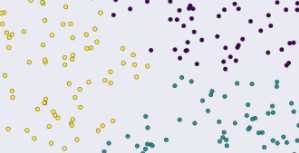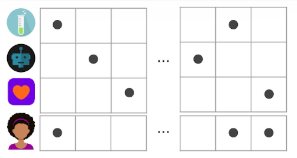| More Machine Learning Courses From Google |
| Written by Sue Gee | |||
| Friday, 17 May 2019 | |||
|
Google has added three new free courses on machine learning topics aimed at researchers, developers and students.They are on Clustering, Recommendation Systems and Testing and Debugging and take learners beyond the Machine Learning Crash Course. Google opened the doors to its Machine Learning Crash Course, which had already been taken by more than 18,000 Googlers, in March 2018. This free course forms the starting point for anyone to learn about and practice ML concepts and comprises 15 hours of material, including instructional videos, interactive visualizations and exercises, still In the interim two more courses have been added - a 1-hour "Introduction to Machine Learning Problem Framing", which caters for beginners without any prerequisites, and "Data Preparation and Feature Engineering in ML" which is 3 hours in length and requires completion of the Crash Course. Two of three new courses have as prerequisites that you've completed all the previous ML courses or have equivalent knowledge and that you have basic programming knowledge in Python. Testing and Debugging builds on the process of training a model and using it to make predictions. The course has 4 hours' of material and its starting point is a hands on programming exercise, using a Colab hosted on GitHub, that takes you step-by-step through debugging a simple model. As the course progresses you learn to:
According to Barry Rosenberg, in an announcement on Google's The Keyword blog, states that this course: Explains the tricks that Google's ML experts use to test and debug ML models. Google's ML experts have spent thousands of hours deciphering the signals that faulty ML models emit. Learn from their mistakes. By way of prerequisites,Clustering, also requires basic knowledge of data distributions, such as Gaussian and power law distributions. Estimated to require 4 hours, it is an implementation-oriented introduction to clustering, giving you practice in using techniques which help find patterns and related groups in complex data. It culminates in a Colab programming exercise. Rosenberg states: The course focuses on k-means, which is the most popular clustering algorithm. Although k-means is relatively easy to understand, defining similarity measures for k-means is challenging and fascinating. The prerequisites for Recommendation Systems are the Machine Learning Crash Course plus familiarity with linear algebra (inner product, matrix-vector product) and at least a little experience programming with TensorFlow and pandas. Again it is a 4-hour course and has a Colab to work through.
According to Rosenberg, it: teaches you how to create ML models that suggest relevant content to users, leveraging the experiences of Google's recommendation system experts. You'll discover both content-based and collaborative filtering, and uncover the mathematical alchemy of matrix factorization. He sums up the set of new courses as engaging, practical, and helpful, concluding: They will push you to think differently about the way you approach your work. Take these courses to copy the moves of the world's best ML experts. More Information
Related ArticlesGoogle Provides Free Machine Learning For All Google Opens Doors To Its Colaboratory Machine Learning Applied to Game of Thrones Kaggle Enveloped By Google Cloud To be informed about new articles on I Programmer, sign up for our weekly newsletter, subscribe to the RSS feed and follow us on Twitter, Facebook or Linkedin.
Comments
or email your comment to: comments@i-programmer.info |
|||
| Last Updated ( Friday, 17 May 2019 ) |






